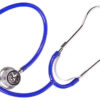Almost everything we learned about obsessive-compulsive disorder prior to 2000 was just plain wrong: it’s not rare, obvious, hard to treat, or a manifestation of deep underlying conflict.
We now know it’s common, often unrecognized, and that it’s far more helpful to treat what maintains the symptoms rather than what lies “underneath.” What brings relief for clients is not insight into the origins or meanings of issues, but rather a systematic change in their reactions to disturbing thoughts, feelings, anxiety, and arousal.
This workshop will bring you up to date on contemporary thinking and treatment of OCD and OCD spectrum disorders.


